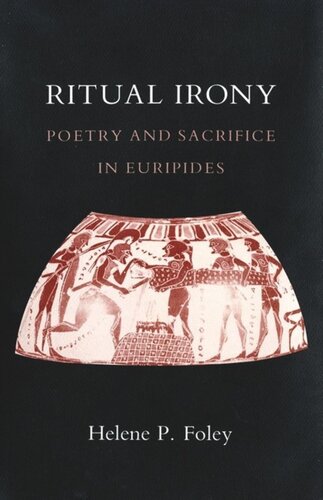

Most ebook files are in PDF format, so you can easily read them using various software such as Foxit Reader or directly on the Google Chrome browser.
Some ebook files are released by publishers in other formats such as .awz, .mobi, .epub, .fb2, etc. You may need to install specific software to read these formats on mobile/PC, such as Calibre.
Please read the tutorial at this link: https://ebookbell.com/faq
We offer FREE conversion to the popular formats you request; however, this may take some time. Therefore, right after payment, please email us, and we will try to provide the service as quickly as possible.
For some exceptional file formats or broken links (if any), please refrain from opening any disputes. Instead, email us first, and we will try to assist within a maximum of 6 hours.
EbookBell Team

4.1
100 reviewsRitual Irony is a critical study of four problematic later plays of Euripides: the Iphigenia in Aulis, the Phoenissae, the Heracles, and the Bacchae.
Examining Euripides' representation of sacrificial ritual against the background of late fifth-century Athens, Helene P. Foley shows that each of these plays confronts directly the difficulty of making an archaic poetic tradition relevant to a democratic society. She explores the important mediating role played by choral poetry and ritual in the plays, asserting that Euripides' sacrificial metaphors and ritual performances link an anachronistic mythic ideal with a world dominated by "chance" or an incomprehensible divinity.
Foley utilizes the ideas and methodology of contemporary literary theory and symbolic anthropology, addressing issues central to the emerging dialogue between the two fields. Her conclusions have important implications for the study of Greek tragedy as a whole and for our understanding of Euripides' tragic irony, his conception of religion, and the role of his choral odes.
Assuming no specialized knowledge, Ritual Irony is aimed at all readers of Euripidean tragedy. It will prove particularly valuable to students and scholars of classics, comparative literature, and symbolic anthropology.